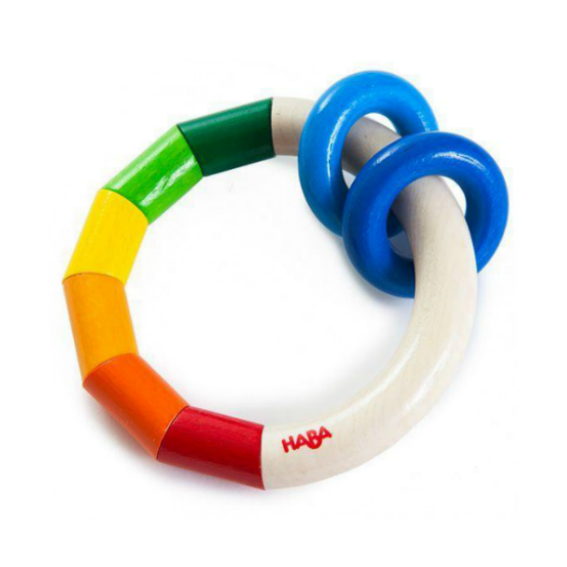9 Decisions To Transform Unhealthy Conduct
Actually, the Aha! Parenting site has over a thousand pages of examples that current you strategies to coach acceptable conduct using empathic limits, so within the occasion you are not
getting enough examples of strategies to coach acceptable conduct from these posts, please do some exploring on this site! I hope that you should have
an Aha! second, which is that this:
There isn’t any such factor as a such issue as a brat, solely a toddler who’s hurting.
That doesn’t indicate that you simply simply is not going to at situations get pissed off collectively together with your teenager, significantly after they know the appropriate conduct nonetheless is not going to do it. Even worse
is provocative conduct, when the child deliberately acts badly — what some dad and mother title “bratty” conduct. So to be truthful, most dad and mother have at situations
found themselves questioning if maybe screaming or using stress might help “educate” the child acceptable conduct.
Nonetheless the deeper actuality is that children want larger than one thing on the earth to protect their relationship with us, as long as that doesn’t compromise their
private integrity. So in case your teenager is performing like a “brat,” she’s each signaling that she needs a stronger reference to you, that she’s purchased some
massive feelings she needs your help with, or that she’s going to’t meet your expectation with out some tailored assist. In the end, assist (along with modeling)
is how we educate acceptable conduct — on account of that is what helps youngsters be taught, and what motivates them to cooperate.
So given that Aha! notion, which of these decisions could be the best choice to transform “bratty” conduct into cooperative conduct?
- Extreme expectations for the child’s conduct
- Ignore “harmful conduct”
- Scream and Shout
- Timeout
- Give tailored assist so the child can meet your expectations.
- Set empathic limits
- Help the child with the feelings that are conserving him from cooperating by collaborating in
- Help the child with the feelings that are conserving him from cooperating by crying
- Hugs
Let’s take into consideration each of these in flip, using this occasion:
“Dr. Laura… Every time I come home with my daughter I remind her that when we go inside she ought to take off her sneakers. She normally will immediately run to the couch and climb onto it alongside along with her sneakers on. I do know she does this precisely on account of she is conscious of she’s not imagined to, and now I warn her if she doesn’t get down she goes to get a timeout. Usually she’s going to get a timeout. I’m unable to not reply when she does one factor like this. What can I do instead of a timeout?” – Eden
1. Have extreme expectations for the child’s conduct.
Certain, that’s an environment friendly approach. If we give up and let our teenager soar on the couch alongside along with her sneakers, she will certainly do it. Nonetheless this method solely
works once we’ve bought age-appropriate expectations and constantly, cheerfully, empathically implement them. So if the child is conscious of the age-appropriate expectation
and nonetheless doesn’t meet it, then each she needs help with the tangled-up feelings that are conserving her from cooperating, or she needs a larger connection
with us so that she WANTS to cooperate.
2. Ignore the conduct.
This works for short-term factors you possibly can dwell with. For instance, in case your teenager is performing out on account of he’s very hungry, you can deal with his need for meals, and
he’ll rapidly be once more to his sunny self. Chances are you’ll acknowledge his inappropriate conduct in a non-judgmental method: “You are so hungry, you’re getting very impatient… Let’s calm down and get you some meals!” nonetheless
you needn’t make an infinite deal about it. Then once more, in case your teenager is repeatedly testing your limits by leaping on the couch, ignoring
the conduct doesn’t help. She’s asking you to intervene to help her.
3. Scream and Shout.
That can also be known as the parental tantrum. It is not at all an environment friendly tactic in imposing your expectations, in addition to to the diploma that it scares your teenager
into fast compliance. Everybody is aware of that in grownup relationships when someone indulges in a “tantrum” it erodes the connection. As soon as we do it with
our youngsters, it moreover erodes the connection. Sadly, that makes children act out rather more over time. Screaming is a symptom that you’ve slipped onto
the low avenue of parenting, into wrestle or flight, and likewise you are seeing your teenager as a result of the enemy. Our children are not at all the enemy, regardless of how ugly they’re performing.
They’re very youthful folks with immature brains who signal within the one method they are going to that they need our help.
4. Timeout.
This sometimes stops the “bratty” conduct immediately. Nonetheless, it’s a symbolic abandonment, which is why it actually works. In the end, your teenager needs your
presence to survive. Inserting her in timeout is a threat that at any time chances are you’ll decide to withdraw your love and even your presence, leaving your teenager unprotected. You might be
telling her that you simply simply’re not there to help her with these upsetting feelings that are driving her to behave out. Since most kids aren’t compliant enough
to go willingly to day journey, it creates vitality struggles which will infect your total relationship. And it stops working as children change into older, leaving a
resentful teenager who’s in riot fairly than one who WANTS to cooperate.
Maybe worst of all? It doesn’t stop harmful conduct. It’d stop the exact
conduct you make an try to interrupt at that second, nonetheless on account of your teenager ends up feeling indignant, they start performing out in several strategies.
5. Tailored assist so your teenager can meet your expectations.
What kind of assist? One factor that addresses her should actually really feel linked, valued and in administration. Maybe:
- A warmth warning regarding the transition creating, sooner than coming into the house.
- A sport that can get her laughing about vitality and obedience to defuse the stress
about feeling pushed spherical. - A specific job for her to do when she comes into the house, so she feels some vitality and feels her contribution is valued.
- Some explicit warmth bonding time sooner than you come into the house so she needs to look at your lead.
- One other place to leap sooner than coming into the house.
- A ritual of taking her sneakers off sooner than she crosses the sting.
However when
your repeated reminders that they need to take off their sneakers sooner than getting on the couch aren’t working, switch on to:
6. Setting empathic limits
Kids don’t share our priorities. Why should they? They’ve their very personal priorities (leaping on the couch is pleasurable!) and no understanding of our world view
(couches worth money). So it’s our job, all day, on every day foundation, to data them. “Footwear get the couch dirty… no sneakers on the couch.” The additional company
and fixed you may be, the additional your teenager can settle to your limit, grieve about it, and switch on. The additional empathic you may be, the additional your teenager will
settle to your limits with out having to rebel in the direction of them.
Redirection is the best option to stop the conduct on account of it channels the ability. “I see that could be a lot pleasurable! And also you acknowledge the couch is simply not for leaping. Come, off the couch. Let’s go soar on the outdated mattress inside the basement.”
All children will naturally check out limits to see within the occasion that they are company. That suggests that for now chances are you’ll need to stick along with her as you enter the house and help her get
these sneakers off, every time, sooner than she heads for the couch. Lastly, it could flip right into a habits, and neither of you will even give it some thought.
Nonetheless what if she darts away from you and makes a beeline for the couch, sooner than you’ll get her sneakers off? She’s sending you an indication that one factor’s getting
in one of the simplest ways of her cooperating with you. What? Emotions. Kids retailer up their feelings, prepared for a protected chance to launch them with a compassionate
witness. That’s you. If you unravel these tangled emotions, chances are you’ll stop “harmful” conduct sooner than it begins.
Optimistic, you too can make her “stuff” these feelings, by screaming at her or punishing her. She’ll comply, in the end. She’ll perhaps act out in several strategies, though. To not level out that you’ll be eroding the shut relationship you want alongside along with her, so she’ll be a lot much less cooperative usually, at the same time as quickly as she’s going to get earlier this rebellious stage. {The teenager}
years is not going to be pretty. And why would you purposely hurt your relationship with this particular person you launched into the world?
Or you can help her with these feelings. That may help her cooperate collectively together with your agenda. It may educate her emotional intelligence. It may make her further
able to satisfy your expectations as she’s going to grow old. And it will convey you nearer. How? Be a part of, and help her with the sentiments that drive her conduct. In several phrases, Play when you can. Cry when it is a should to.
7. Help the child with the feelings that are conserving him from cooperating — Play when you can.
Take a deep breath and repeat after me: “It is not an emergency. We’re capable of play with this.”
Protect your tone delicate and playful, so that you simply get her laughing. “Excuse me?! Are you on that couch collectively together with your sneakers on?! We’ll see about that! I’m the couch protector, and I always get my girl!” Scoop her up, laughing, and toss her over your shoulder. As you run spherical the house alongside along with her, take her sneakers off and toss them within the path of the place they
belong. Sing a silly chant about how quite a bit you are eager on her and chances are you’ll not at all let her go. Protect dropping her on the couch and scooping her up as soon as extra. Lastly,
collapse collectively on the couch for a superb snuggle.
The following time you enter the house, sooner than you go inside the door, inform her you must play the game as soon as extra, nonetheless first she has to take her sneakers off with you,
correct contained within the door.
Transform the game from one among defiance into one among re-connection and celebration. Use it any time it is good to, to interrupt “harmful” conduct. Guffawing releases
upset feelings almost along with crying does. It moreover creates further oxytocin, the bonding hormone, so everytime you and your teenager are laughing collectively,
you’re bonding.
8. Help the child with the feelings that are conserving him from cooperating — Cry when it is a should to.
What if she doesn’t giggle? Won’t permit you to take her sneakers off? Will get indignant and defiant? She’s previous play. Her provocative conduct is letting you acknowledge that
she merely should cry and categorical all these emotions she’s been stuffing. Wouldn’t it is fairly a bit greater if she might merely say “Mom, I actually really feel like someone is always telling me what to do…I get so bored with it!”
Nonetheless she’s going to’t TELL you methods she feels so instead she SHOWS you, alongside along with her defiance.
Summon up your whole compassion. Look her inside the eye. Set your limit clearly and kindly. “Sweetie, you acknowledge sneakers get the couch dirty. I can’t permit you to placed on sneakers on the couch.”
If you’re able to maintain compassionate, she might burst into tears. (If you take this personally and get mad, there is no method chances are you’ll get to tears — chances are you’ll
merely have a wrestle in your fingers.) Preserve her whereas she cries, if she’ll permit you to. Don’t focus on quite a bit, merely inform her she’s protected. If she lashes out, take note
that the tears are correct behind the anger. She merely should actually really feel a bit safer to permit them to out.
You assemble safety inside the second collectively together with your calm compassion. You assemble safety all by means of your whole interactions collectively together with your teenager with connection and empathy,
along with with play, and with bodily connection. Which brings us to:
9. Hugs
I agree that hugs are normally not our solely option to reconnect and create cooperation. Nonetheless they’re perhaps our most useful. Hugs launch oxytocin, which clears the stress hormones inside the physique and helps the child actually really feel further linked to us. Hugs heal the disconnection that
drives lots of the child’s misbehavior, so hugs help youngsters WANT to cooperate. Hugs soften away the crankiness and anger and help the child actually really feel
protected enough to cry and let free the upsets that are driving her to behave out. And hugs are good for us, too. They remind us that our teenager, even when he’s performing “bratty,” is our
beloved.
Hugs rescue our teenager from the low avenue he’s stumbled onto and pull him once more up onto the extreme avenue with us. Hugs are not any substitute for 24/7 empathy and
every day one-on-one reconnection time collectively together with your teenager, nonetheless 9 hugs a day are vital for him to thrive and have to cooperate.
So for in the intervening time, why not try further hugs?
“Disconnection is on the coronary coronary heart of many conduct points. We steadily reply to “harmful conduct” with isolation, time outs, humiliation, hitting, slapping, threats, yelling or withdrawal of affection. These responses create rather more disconnection, which is why they don’t work very properly.” – Dr. Lawrence Cohen






